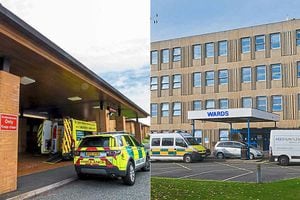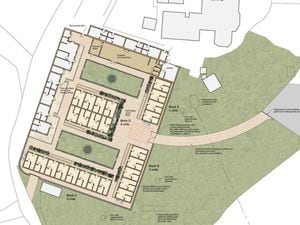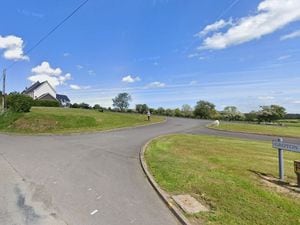Shropshire's hospitals facing crisis over winter pressures
Hospitals in Shropshire don't have enough money to put measures in place to cover the busy winter period, bosses have revealed.

Shrewsbury & Telford Hospitals NHS Trust needs at least £1 million and 92 extra beds.
But due to its rising deficit, board members said they are struggling to find a solution that covers both hospitals and stays within budget.
Health bosses say patient safety is more important than financial pressures, and have told the hospital board to come up with a solution as soon as possible.
Shrewsbury and Telford Hospitals NHS Trust, which runs the Royal Shrewsbury Hospital and Telford's Princess Royal Hospital, had agreed a £5.9m deficit with health bosses for 2016/17. But the latest figures show the trust is already £5.1m in the red after five months of the financial year, from April to August.
The trust's finance director Neil Nisbet is predicting a forecast overspend by the end of the financial year of £8.429m.
Mr Nisbet told hospital board members that if the hospitals were not able to stay within the target of £5.9m, they may not be eligible for some funding next year.
Trust chief operating officer Debbie Kadum said "internal efficiencies" had been used last year to raise the money needed to prepare for winter as well as freeing up extra beds
But due to the financial pressures already on the trust, that was no longer possible.
Mrs Kadum said there were proposals to put up a drop-in ward but the trust did not have the staff to run such a facility.
She said that the situation was different to last year as the hospitals were already "escalated" which means they are seeing more patients than expected for the time of year.
She said it would cost just short of £1 million to address issues and stay within budget at the Royal Shrewsbury Hospital, which is "most challenged" during the winter. But this extra money would not address issues at Telford's Princess Royal Hospital, which itself needs substantial investment to tackle winter pressures.
Simon Latchford, chair of the board, delegated that the decision on what to do during the winter at both hospitals be made by a handful of members outside of the board meeting.
He said it was imperative that the right level of care was put in place to ensure the safety of patients. Non-executive director, Clive Deadman, said the safety and care of patients was more important than the financial constraints.





